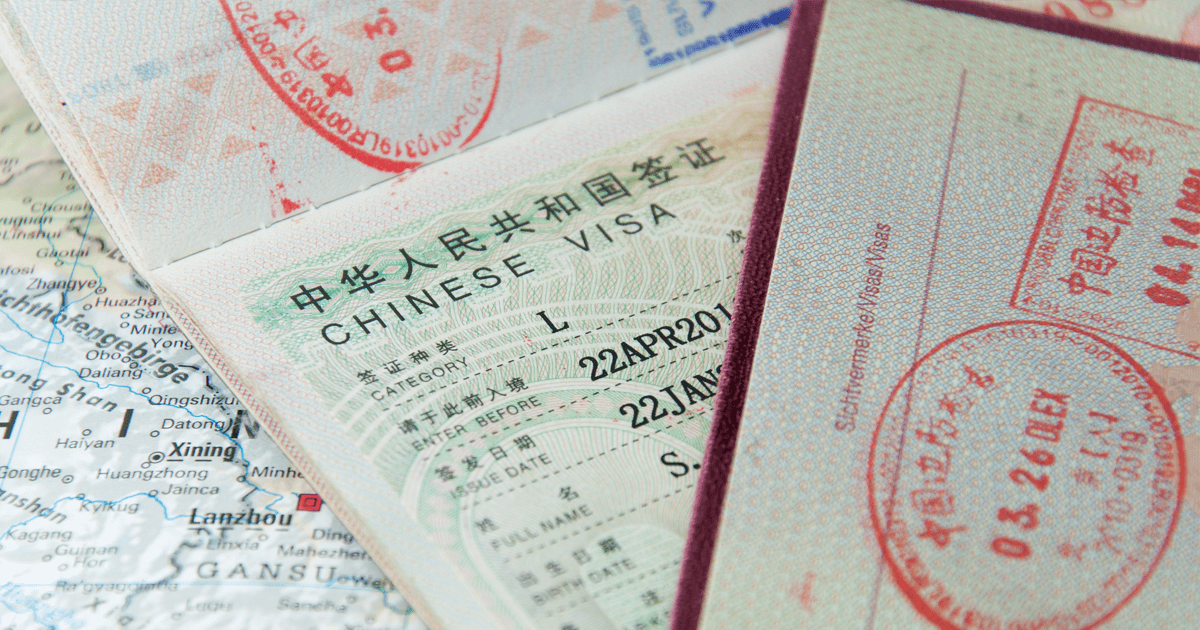The ban on foreign entry to China brought about by the COVID-19 pandemic has caused anxiety to many foreigners holding a Chinese visa. Until now, the Chinese government has not issued a time frame on how long the ban will take effect. Thus, it causes uncertainties on the part of foreign workers who have temporarily left the country.
Take a look back at our post on COVID-19: What Foreigners in China Need to Know
If you are one of the anxious foreigners and have several questions related to your residence visa, this article will give you a brief overview of what is at stake. So, keep reading.
Chinese visa suspension for foreign nationals
On March 28, 2020, the Ministry of Foreign Affairs enforced the suspension of entry by foreign nationals to China. According to MFA’s announcement, all foreigners holding valid Chinese visas cannot enter the country indefinitely until further notice.
The restriction applies to the following visa types:
- Chinese visas including work, tourist, student, family, business visa, etc.
- Residence permit
- APEC business travel card
- Port visas
- All transit travel visas
It also includes those related to visa-free policies as mentioned below.
- 30 days (Hainan)
- 15 days (Foreign cruise group tours through Shanghai Port)
- 144 hours (Foreign group tours from Hong Kong or Macau SAR through Guangdong)
- 15 days (Specified for foreign tour groups of ASEAN countries through Guangxi)
On the other hand, the following visa holders are still allowed for entry into China:
- Individuals with diplomatic, service, courtesy, or C visas
- Foreign nationals with visas issued after the announcement
Foreigners entering China for necessary economic, trade, scientific or technological activities or out of emergency or humanitarian needs may apply for visas at the Chinese embassies or consulates in their respective countries.
The validity of Chinese visa: work permit and residence visa
Concerns about work permit and residence visa status in China remain eminent in view of the travel restrictions imposed by the Chinese authorities. Therefore, foreigners must pay attention to different immigration-related measures being implemented during the COVID-19 pandemic.
Renewing work permit and extending Chinese visa
What happens if my visa expires during the COVID-19 pandemic?
On March 2, 2020, China’s National Immigration Administration announced an automatic extension of expiring visas for two months. Furthermore, foreign nationals can stay or exit China as usual. This policy continues to apply up to the present to foreign nationals who are currently staying in China yet have difficulty leaving due to the pandemic situation. However, once the 2-month extension is over, the foreigner should apply for a new visa at the local NIA office.
How can I renew my work and residence permits?
Since February 2020, all applications, renewal, and cancellation of Types B and C permits can proceed online and under the “commitment system”. This newly-installed system now applies to Chinese cities like Beijing, Shanghai, Guangzhou, and Shenzhen. All requirements are strictly submitted online considering the efforts to lessen physical contact for visa approval processes. On the other hand, procedures for Type A work permits remain unchanged.
The “commitment system” refers to a written letter by the Chinese company that all documents submitted are true and that it will take responsibility for any error.
Expiring Chinese visa and overstaying
What do I do if I was unable to renew my residence visa due to the epidemic outbreak?
The Exit-Entry Administration Bureau will take epidemic control and prevention into consideration in evaluating the failure to renew the visa. The bureau can grant relaxed measures including reduction or waiver of penalties for overstaying. Regardless, foreigners must be responsible enough to handle visa expiration as much as possible.
Obtaining a Work Permit Notice Letter
What if I recently obtained a Work Permit Notice Letter but cannot enter China due to the ban on foreign nationals?
Foreigners who have obtained WPNL before the ban notice can apply for Z-visa at their respective Chinese embassies or consulates. However, only foreign nationals with Z-visas issued after the announcement are not affected by the ban. Therefore, those with WPNL but does not have a Z-visa yet after the ban must wait for further advice on the re-opening of Mainland China borders.
Terminating a contract with the employer
What happens to my employment since I cannot go back to China indefinitely?
The employment status and compensation of foreign employees who are outside China during the ban depends on the employer-employee agreement. Companies can choose to keep the employee and have them work remotely. Or, they can suspend the contract and reactivate it once the employee is back in China. Companies can also terminate the contract and relocate their employees to offices outside China.
If the company decides to keep the labor relationship with the employee, the validity of the work permit and residence visa shall continue until the ban is lifted. Thus, the foreign employee can enter China as usual.
What if my work permit expires during the ban and I am outside China?
If the employer decides to continue the contract with the foreign employee, the work permit and residence visa can be renewed or applied online under the “commitment system”.
Getting a new Z-visa and work permit
What happens if I get a job offer from a new company during the pandemic and I cannot go back home to process my Z-visa at the Chinese consulate?
You do not need to go back home to process your visa at the Chinese consulate in your country. The company you are currently working for can apply for the cancellation of work permits and visas, meanwhile, the new company can transfer your work permit and visa.
If you are in China and has gotten your first job offer, the hiring company can process your work visa online through the “commitment system”. You do not need to go back home and apply at the Chinese consulate for Z-visa. However, concerning this situation, China has specific rules per country. It is best to ask a local expert or contact the immigration office.
Furthermore, foreigners who are in China and have obtained WPNL can apply for a three-month temporary residence permit at the Public Security Bureau (PSB) to facilitate future procedures.
Unfortunately, for those who are currently outside China, although they can apply for visas at the respective Chinese consulate, it is impossible to obtain a work permit since the ban on entry of foreigners has not been lifted yet.
Registering a temporary address in China
Can I register my temporary residence online?
Normally, all foreigners with work permits and residence visas should register their temporary residence at the nearest police district. So far, foreigners who are in Shanghai can take advantage of the online police registration for foreign residents.
As for other cities, China has designated a “residence committee (小区居委会)” per community block. Foreigners can obtain the scan code from the officer-in-charge to self-register online.
Latest update on foreign entry ban
MFA Deputy Director Zhao Lijian stated at a press conference that changes to the foreign entry ban will depend on the development of COVID-19 situation across the countries. Zhao also shed light on reports concerning discrimination and rising xenophobia in China, saying that the country has promptly adjusted the quarantine measures toward foreign nationals.
MFA Spokesperson Hua Chunying also echoed the same response during a press conference, stressing that all prevention and control measures are applied to both Chinese and foreign citizens.
Given the current pandemic situation, China will continue to reinforce appropriate measures to maintain recovery and avoid further imported COVID-19 cases. Hence, it is likely that visas will only be granted to foreigners who are currently in China. On the other hand, the entry will only be allowed for essential or urgent purposes.
Recently, China’s MFA Information Department Spokesperson Geng Shuang confirmed the “fast track” arrangements China made with the Republic of Korea and Singapore. At a press conference, Geng Shuang mentioned that the arrangements intend to allow urgent essential travels including business and technical purposes.
Geng Shuang added that China is also in talks with other countries regarding the matter.
Key takeaways
The Chinese government continues to rigorously apply changes to its policies considering the latest developments in the COVID-19 pandemic. Thus, it is advisable to closely monitor China’s immigration news and seek professional advice. Furthermore, local immigration guidance may be different per Chinese city. Hence, it is best to keep in touch with the immigration bureau or consult with local experts regarding visa issues.
If you need a consultation regarding your employment status and related tax or HR concerns, do not hesitate to contact us and get appropriate advice and help with your current situation.If you want to know more about doing business in China, contact our team for consultation and assistance. Follow us on social media to get the latest news!
Our experienced team has the necessary expertise and the know-how to support you with your business – have a look at the services we offer.
See how much salary you receive after tax and check your company value without leaving WeChat!
Also, our Mini Program can estimate the salary in your industry, for your experience level and position. A huge help for salary negotiations!






